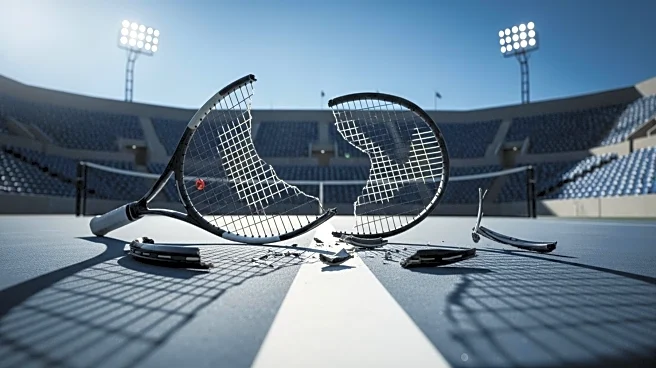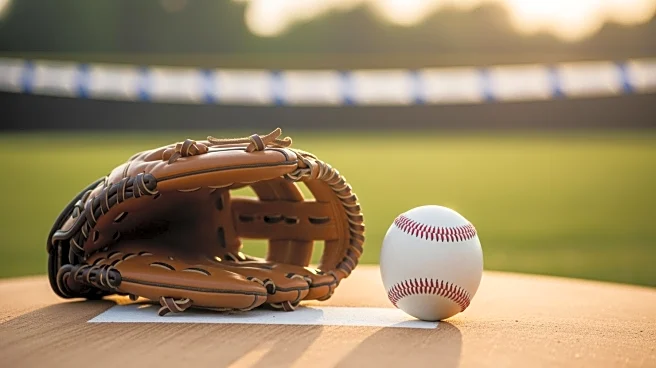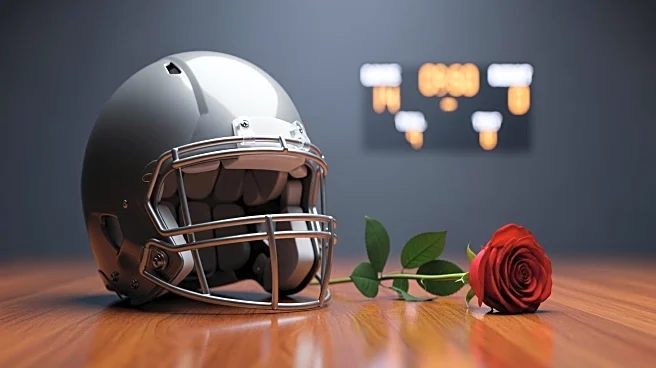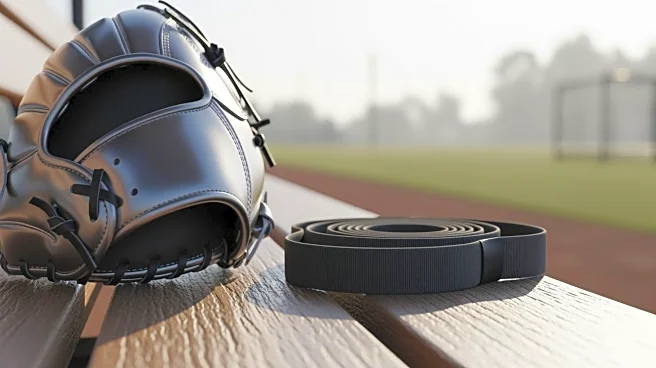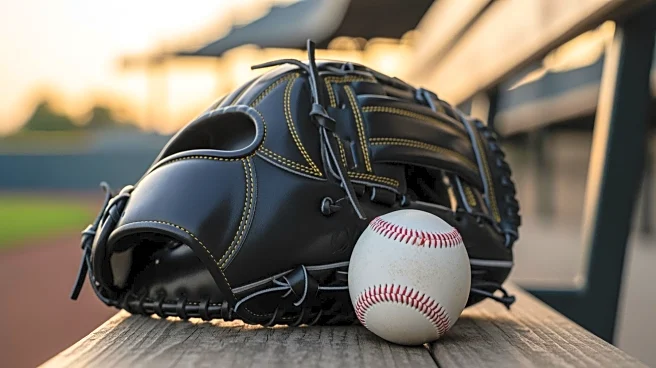What is the story about?
What's Happening?
During a match at the US Open, tennis player Andrey Rublev experienced a moment of frustration after losing a service game despite having a 40-0 lead. This led him to smash his racquet on the court, a display of his disappointment and anger. Such incidents are not uncommon in high-pressure sports environments, where athletes often face intense emotional and physical challenges. Rublev's actions highlight the stress and competitive nature of professional tennis, especially in major tournaments like the US Open.
Why It's Important?
Rublev's reaction underscores the mental and emotional strain athletes endure during high-stakes competitions. This incident may draw attention to the importance of mental health support for athletes, as well as the pressures they face in maintaining performance levels. It also reflects the intense competitive atmosphere of the US Open, one of the four Grand Slam tournaments, where players are under constant scrutiny from fans and media. Such moments can influence public perception of athletes and spark discussions about sportsmanship and emotional control in professional sports.
What's Next?
Following this incident, Rublev may face scrutiny from officials and the media regarding his conduct. The US Open and tennis governing bodies often review such actions to determine if penalties or fines are warranted. Additionally, Rublev might address his emotional management strategies to prevent similar occurrences in future matches. This could involve working with coaches or sports psychologists to enhance his mental resilience during competitions.
Beyond the Headlines
The incident may prompt broader discussions about the pressures faced by athletes and the need for comprehensive support systems. It could lead to increased advocacy for mental health resources in sports, emphasizing the importance of emotional well-being alongside physical training. Furthermore, it might influence how young athletes are trained to handle stress and disappointment, promoting healthier coping mechanisms.
